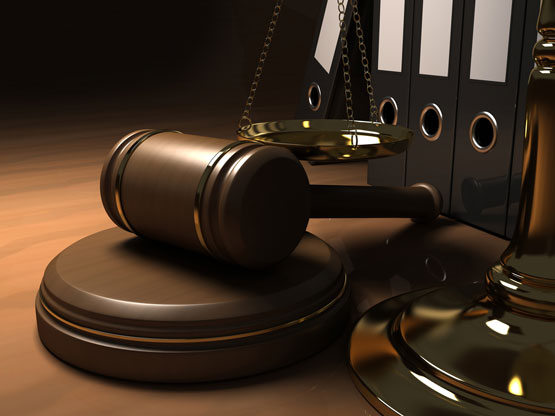
Libel law is evolving before our eyes. Stephanie Clifford, aka Stormy Daniels, has sued Donald Trump for libel on the ground that the president tweeted that her allegations that she was threatened over their sexual liaison are "a total con job." The legal theory of the suit, filed Monday in New York, is in line with Summer Zervos' libel suit against Trump for repeatedly denying her allegations that he kissed and touched her inappropriately.
Both lawsuits are creative attempts to push libel law in a direction that fits the #MeToo moment. Both face pushback from the traditional First Amendment instinct to narrow the reach of libel law, especially when the victim is a public figure. Whether you think the lawsuits should succeed will tell you something important about where you come down on free speech and legal responsibility today.
The complaint in Clifford's lawsuit is intelligently written. In the key paragraph, it says that Trump's tweet "falsely attacks the veracity of Ms. Clifford's account of the threatening incident" and "operates to accuse Ms. Clifford of committing a crime under New York law . . . in that it effectively states that Ms. Clifford falsely accused an individual of committing a crime against her when no such crime occurred."
The basic idea is that it would be a crime to invent a criminal complaint - so it's defamation of character to say that someone else has done so.
It's also crucial to Clifford's case that Trump had to have known that the statement was false or recklessly disregard that it was false. That's because, under the standard set by the famous New York Times v. Sullivan case, a libel case against a public figure may only succeed if the defamatory statement was made maliciously. The case defines malice as a knowingly false statement or one made with reckless disregard to its truth or falsehood. Clifford is certainly a public figure, based on her acting career and public appearances.
Zervos' case is based on a number of Trump denials, not just a single one. The core of her argument is that Trump defamed her by calling her a liar "who came forward only for fame or at the manipulation of the Clinton campaign." Zervos, too, is a public figure, based on her appearance on Trump's TV show, "The Apprentice."
Technically, Zervos' libel claim is weaker than Clifford's, because Trump never accused her of a crime. But a New York State trial judge has allowed the case to go forward. (It's on appeal regarding the question of the legitimacy of a civil suit against the president in state court.)
Zervos' story has an element that Clifford's (sort of) does not: Alleged sexual harassment. Clifford has said that she had consensual sex with Trump, albeit under circumstances that others could certainly describe as implicitly coercive.
The sex component matters in this cultural moment. In both of these cases, a woman is using libel law to challenge a man who is denying a story connected to sexual contact between them. That is deeply resonant in the #MeToo context.
In fact, if the suits succeed, it's possible to imagine them as vanguard actions on the way to bringing #MeToo allegations to legal account. It can be difficult or even impossible to sue for forms of harassment that don't occur between co-workers and that don't involve unwanted sexual touching.
Given this difficulty, if accusers can sue perpetrators not for the underlying harassment but for denying their allegations publicly, such suits could become a tool in the limited toolkit available to harassment victims.
In an important sense, this would be a progressive result - the repurposing of libel law to make the courts into forums for the vindication of victims' claims.
The argument against such an evolution lies in the free-expression concerns that accompany libel suits. When Trump or other powerful people act as libel bullies and sue anyone they don't like, free speech advocates object that libel is being used to chill expression.
Thus, the rebarbative Roy Moore on Monday sued some of his detractors for defamation - including four women who accused him of sexual advances when they were underage.
Applied to the Clifford and Zervos suits, the standard First Amendment argument would say that denying an allegation that is itself defamatory should not count as defamation. On this view, when Trump said that the allegations against him were lies or a "con job," he was using speech to defend himself against speech.
Even if the accusers were telling the truth and Trump was lying, goes the argument, the best solution isn't to haul everybody into court to get to the bottom of the matter, but to let the truth come out through more public speech. The minute the lawyers get involved, everyone will be made less likely to speak out publicly on matters of public concern.
What makes this First Amendment concern something less than a slam-dunk argument against Clifford's and Zervos' cases is the sympathy that we should rightly feel for women who are disbelieved and whose legal rights are constrained. True, libel law is a double-edged sword that could be used against women who make allegations, as Moore did. But given that double-edge, shouldn't victims have the right to strike as well as accusers?
There is no simple solution here. The value of vindicating harassment claims by libel law in an unequal, sexist world is in tension with the value of protecting free speech. Where you come down on the issue will probably have a lot to do with your views about #MeToo. And the courts' eventual decisions in these cases may affect the future of the movement.
Comment by clicking here.
Noah Feldman, a Bloomberg View columnist, is a professor of constitutional and international law at Harvard University and the author of six books, most recently "Cool War: The Future of Global Competition."


 Contact The Editor
Contact The Editor
 Articles By This Author
Articles By This Author